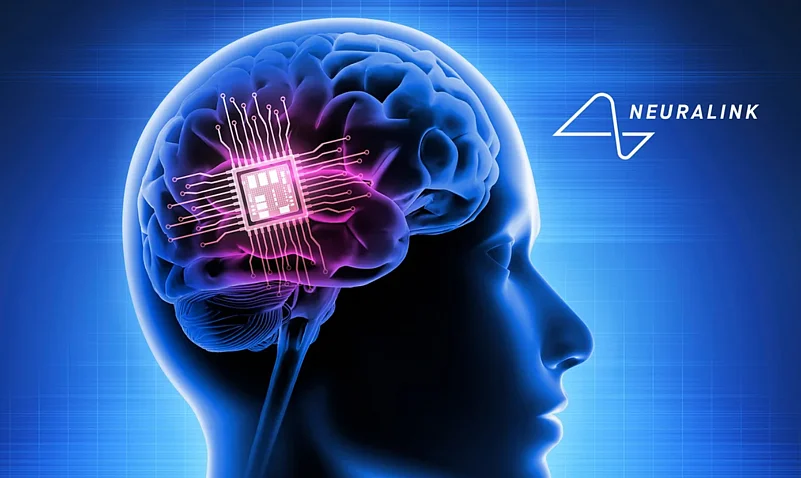Elon Musk’s ambitious venture, Neuralink, hit a snag in its pioneering journey towards merging humans with artificial intelligence. The startup revealed on Wednesday that a portion of its groundbreaking brain implant encountered technical issues following its deployment in a human patient for the first time.
Neuralink, spearheaded by Musk, aimed to revolutionize the realm of neurotechnology with its brain-computer interface (BCI), promising potential breakthroughs in aiding patients with paralysis to control external devices using just their thoughts. The centrepiece of their innovation, known as the Link, employs an intricate setup of 1,024 electrodes distributed across 64 ultra-fine "threads," each finer than a human hair, as detailed on the company’s website.
In January, Neuralink marked a milestone by implanting the device into 29-year-old Noland Arbaugh as part of a safety evaluation study. The subsequent live demonstration in March appeared promising, with Neuralink asserting in an April blog post that the surgical procedure proceeded without complications.
However, subsequent weeks unveiled a troubling development. Neuralink disclosed in a recent blog post that several threads from Arbaugh’s brain had retracted, diminishing the functionality of the implanted electrodes and impeding the system’s performance in measuring speed and accuracy.
The exact number of retracted threads remained undisclosed by Neuralink, which did not respond immediately to inquiries from CNBC. To address the setback, the company adjusted its recording algorithm, refined the user interface, and endeavoured to enhance signal translation into cursor movements.
Reports indicate that Neuralink contemplated removing the implant, although the issue did not pose a direct threat to Arbaugh's well-being. The Wall Street Journal, which initially reported on the malfunction, prompted Neuralink’s public acknowledgement of the problem.
Despite the setback, Arbaugh continues to utilize the BCI system extensively, logging around eight hours of usage per weekday and up to 10 hours on weekends. Describing his experience with the Link, Arbaugh likened it to a "luxury overload" and expressed gratitude for its role in facilitating his reconnection with the world.
While Neuralink stands at the forefront of BCI development, it faces competition from other entities exploring similar technologies, and the concept of brain-computer interfaces has been under academic scrutiny for decades.




























